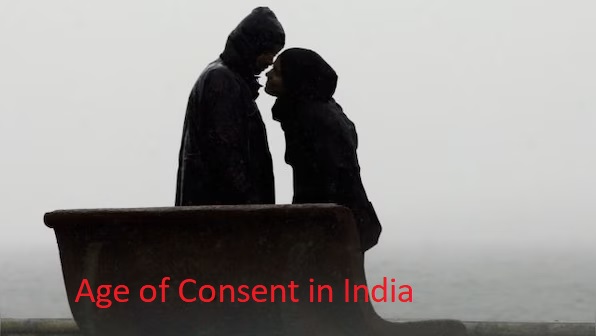In India, the age of consent is a critical aspect of the country’s legal framework, ensuring that individuals can legally engage in sexual activities only when they are considered mature enough to make informed decisions. This issue has sparked debates, considering India’s complex social fabric, cultural norms, and historical background. This article delves into the age of consent in India, exploring its legal foundations, implications, controversies, and the legal system’s role in protecting minors.
What is the Age of Consent?
The age of consent refers to the legal age at which an individual is considered capable of agreeing to sexual activity. Below this age, any sexual activity is considered illegal, and the individual is deemed incapable of giving legal consent. The purpose of the age of consent laws is to protect minors from exploitation and abuse, ensuring that they can make informed decisions when it comes to matters of sexuality and relationships.
In India, the age of consent is governed by various laws and judicial interpretations. It primarily stems from the Indian Penal Code (IPC), which provides guidelines on sexual offenses and protection for minors.
Legal Framework of the Age of Consent in India
Indian Penal Code (IPC) and the Age of Consent
The Indian Penal Code, 1860, specifically Section 375, defines rape and outlines the legal provisions related to sexual offenses. According to the IPC:
- Section 375 states that a man is guilty of rape if he has sexual intercourse with a woman under certain circumstances, including if the woman is under the age of 18 years, regardless of whether she consents or not.
- The age of consent in India was raised to 18 years in 2013 after the Nirbhaya case (a gang rape that led to widespread protests) prompted significant changes in the law.
Before this, the age of consent was set at 16 years, but the laws were criticized for failing to adequately protect young girls, who were vulnerable to sexual exploitation and abuse.
Protection of Children from Sexual Offenses (POCSO) Act, 2012
The POCSO Act further strengthens the protection of children under the age of 18 years. This act specifically addresses sexual crimes against minors, including child sexual abuse, and includes provisions for the criminalization of sexual harassment, child pornography, and sexual assault.
The POCSO Act provides a zero-tolerance policy towards sexual offenses committed against children, with strict penalties for offenders. It is an essential piece of legislation for ensuring that minors are protected from sexual exploitation, irrespective of consent.
Consent and Marital Rape
Another significant issue that has garnered attention in India is the concept of marital rape. According to the current laws, rape within marriage is not recognized as a criminal offense if the wife is above the age of 15 years. This has led to widespread criticism from various women’s rights groups, as it means that a husband can legally have non-consensual sex with his wife under certain conditions.
However, the age of consent in India has been a topic of ongoing discussion in relation to marital rape. Advocates for women’s rights have called for legal reforms to ensure that all forms of non-consensual sex, including marital rape, are criminalized, irrespective of the age or marital status of the woman involved.
Controversies and Challenges
Cultural and Social Perspectives on the Age of Consent
While the legal age of consent is fixed at 18 years, the age of marriage in India is often debated due to varying cultural and social norms across different states. In some regions, girls are married at a younger age, which has led to confusion regarding the relationship between the age of consent and the age of marriage. The discrepancy between these ages has raised concerns about the potential for young girls to be married off before they are legally considered capable of consenting to sexual activity.
Despite the legal framework protecting minors, the societal acceptance of early marriage and childbearing in certain communities remains an issue. This highlights the need for greater education and awareness campaigns about the rights of minors and the significance of informed consent.
Grey Areas in the Law
Though the age of consent is clearly defined, there remain certain grey areas in the legal system. One of the most contentious issues involves sexual relations between adolescents close in age. The law does not provide clear guidance on situations involving individuals who are both minors but close in age. For example, if a 17-year-old engages in a sexual relationship with an 18-year-old, the situation may not be prosecuted, but the law does not account for the nuances of such cases.
In such cases, determining whether the sexual activity was consensual or coercive becomes challenging. These gaps in the law have led to concerns about ensuring that the rights of minors are adequately protected without criminalizing consensual relationships between adolescents.
International Comparisons
The age of consent laws vary greatly across the world. In some countries, the age of consent is as low as 13 years, while in others, it is as high as 21 years. Here’s a brief look at how India compares with some other nations:
| Country | Age of Consent |
|---|---|
| India | 18 years |
| United States | 16-18 years, depending on the state |
| United Kingdom | 16 years |
| Australia | 16 years in most states |
| Japan | 13 years |
| Germany | 14 years |
As seen in this table, India follows the more protective approach of setting the age of consent at 18 years, ensuring that minors are shielded from exploitation and coercion.
Recent Developments and Future Outlook
Reforms and Advocacy for Change
In recent years, there has been significant advocacy for reforming the legal system to address the evolving nature of consent and sexual offenses. Activists have been pushing for laws to recognize marital rape and extend the age of consent to greater protection for minors. Moreover, there is a growing call for sex education to be included in school curriculums to equip children with the knowledge of their rights, understanding consent, and how to protect themselves from abuse.
In 2024, various reforms have been proposed to address the challenges posed by evolving relationships and the lack of legal clarity in cases of close-in-age sexual encounters. These reforms would help ensure that the age of consent is fully aligned with India’s commitment to safeguarding the rights and well-being of children and young adults.
Final Thoughts of this article
The age of consent in India plays a crucial role in protecting minors from sexual exploitation and abuse. While India has made significant strides in reforming its laws, there remain challenges and complexities that need to be addressed. The country’s legal framework, including the Indian Penal Code and POCSO Act, provides a foundation for safeguarding the rights of minors. However, there is a growing recognition that further reforms are necessary to address contemporary concerns, such as marital rape and the nuances of adolescent relationships.
Ultimately, the conversation surrounding the age of consent must be viewed through a multi-dimensional lens, incorporating legal, cultural, and social factors to ensure the safety and autonomy of individuals, especially minors, in India.
Disclaimer Note: This article is intended for informational purposes only and should not be construed as legal advice. The content provided here is based on existing laws and regulations at the time of writing. For legal advice or concerns, consult a qualified legal professional or seek guidance from relevant authorities.










